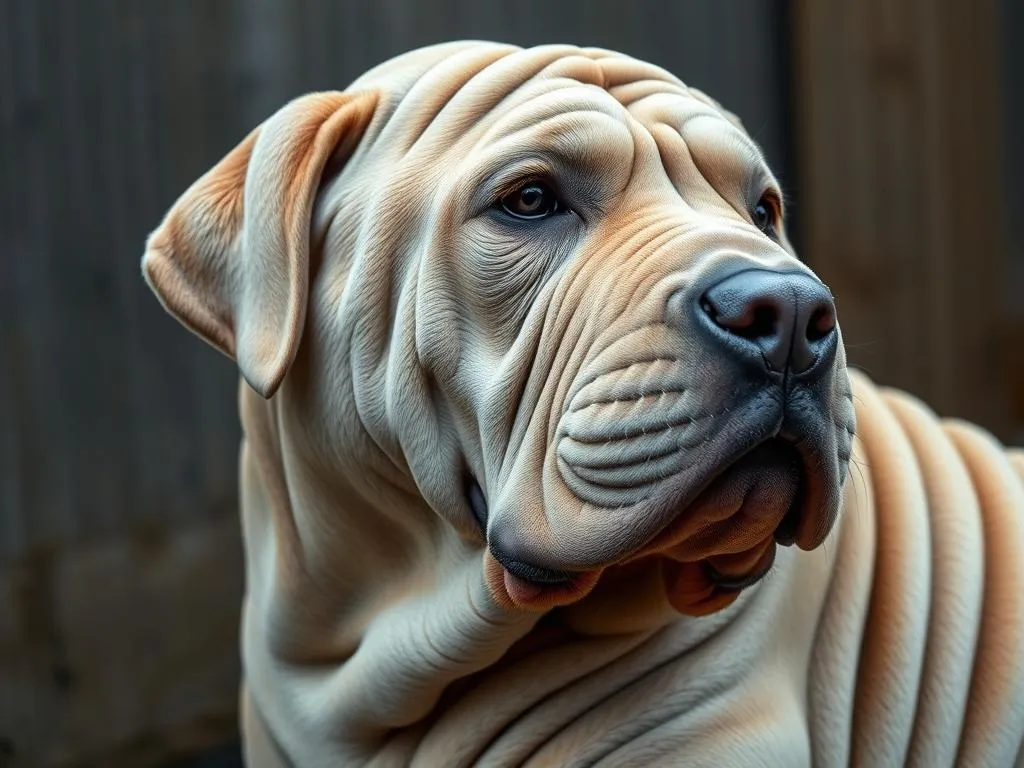
Introduction
The Shar Pei is a unique and captivating breed known for its distinctive appearance and loyal demeanor. With a history steeped in tradition, this breed has gained popularity among dog lovers worldwide. However, before welcoming a Shar Pei into your home, it’s essential to understand the pros and cons of owning one. This article aims to provide potential dog owners with a thorough understanding of Shar Pei characteristics, benefits, and challenges.
History of the Shar Pei
Origins
The Shar Pei traces its roots back to ancient China, where it was initially bred for hunting and guarding. Its wrinkled skin and unique features were not only distinctive but also functional, serving to protect the dog during fights with larger animals. Historically, Shar Peis were popular among farmers, serving both as companions and working dogs.
Recognition
The breed gained international attention in the 20th century, particularly in the 1970s when they were introduced to Western countries. The American Kennel Club (AKC) officially recognized the Shar Pei in 1992. Since then, the breed has experienced fluctuations in popularity, with many enthusiasts drawn to their unique appearance and loyal nature.
Physical Characteristics
Appearance
The Shar Pei is easily recognizable due to its loose, wrinkled skin and distinctive “hippopotamus” face. They come in various coat types, including short, rough, and brush, and are available in numerous colors such as cream, fawn, and chocolate. Their unique features, including a curled tail and small, triangular ears, contribute to their charming appearance.
Size and Weight
On average, Shar Peis stand between 18 and 20 inches tall at the shoulder and weigh between 45 and 60 pounds. They typically reach their full size by about 12 to 18 months of age. Understanding their growth stages is crucial for new owners to ensure proper development and care.
Temperament and Behavior
General Temperament
The Shar Pei is known for its calm and reserved personality. They are generally loyal and protective of their families but can be aloof with strangers. Early socialization is essential to help them develop a friendly demeanor towards other pets and people.
Trainability
Despite their intelligence, Shar Peis may exhibit a stubborn streak, making training a challenge for some owners. Utilizing positive reinforcement techniques, such as treats and praise, can enhance their learning experience. Consistent training is vital to help them become well-behaved companions.
Pros of Owning a Shar Pei
Loyalty and Affection
One of the most significant advantages of owning a Shar Pei is their unwavering loyalty. They form strong bonds with their families and often display affectionate behaviors like cuddling and following their owners around the house.
Unique Appearance
Many people are drawn to the Shar Pei due to their distinctive and charming looks. Their wrinkles and unique features make them stand out in a crowd, capturing the attention of dog lovers everywhere.
Low Exercise Needs
Unlike some breeds that require extensive exercise, the Shar Pei has relatively low activity levels. They enjoy short walks and playtime but are also content to relax at home, making them suitable for apartment living.
Health Considerations
The average lifespan of a Shar Pei is around 8 to 12 years. While they are prone to certain health issues, regular veterinary check-ups and proper care can help mitigate these risks. Being aware of common health concerns can lead to proactive measures for maintaining their health.
Cons of Owning a Shar Pei
Grooming Requirements
Owning a Shar Pei comes with specific grooming needs. Their wrinkles require regular cleaning to prevent skin infections. Additionally, brushing their coat is essential to manage shedding and maintain skin health.
Health Concerns
Shar Peis are susceptible to various health issues, including hip dysplasia and skin infections. It’s crucial for owners to be vigilant about their dog’s health and schedule regular veterinary check-ups to catch any concerns early.
Temperament Challenges
While Shar Peis can be affectionate, their stubbornness may pose challenges in training. Without proper socialization, they may show aggressive tendencies towards unfamiliar people or pets, making early training essential.
Environmental Needs
This breed is sensitive to temperature extremes. They thrive in moderate climates but can struggle in extreme heat or cold. Owners must provide a secure environment, as their natural guarding instincts may lead them to be wary of strangers.
Ideal Living Conditions
Home Environment
The Shar Pei can adapt well to various living situations, from families to singles or seniors. They do best in homes with a secure yard where they can roam and play safely. While they can live in apartments, they require a comfortable space to relax.
Compatibility with Children and Other Pets
With proper socialization, Shar Peis can be excellent companions for children and other pets. However, supervision is essential, especially during playtime, to ensure a harmonious relationship. Teaching children how to interact gently with dogs can foster a positive environment.
Adoption and Purchase Considerations
Finding a Reputable Breeder
If you decide to purchase a Shar Pei, it’s crucial to find a reputable breeder. Ask questions about health clearances, the puppy’s lineage, and the breeder’s practices. A responsible breeder will prioritize health and temperament in their breeding program.
Adoption Options
Adopting a Shar Pei from a rescue organization can be a rewarding experience. Many breed-specific rescues work tirelessly to find homes for dogs in need. Adopting not only gives a dog a second chance at life but also often involves lower costs compared to purchasing from a breeder.
Conclusion
In summary, the Shar Pei is a breed with unique characteristics and a rich history. Understanding the pros and cons of owning a Shar Pei is essential for potential dog owners. Their loyalty, low exercise needs, and distinctive appearance make them appealing, while grooming requirements, health concerns, and temperament challenges require careful consideration. Ultimately, potential owners should evaluate their lifestyle and readiness for a Shar Pei to make an informed decision.
FAQs
Are Shar Peis good family dogs?
Yes, Shar Peis can be excellent family dogs, especially when properly socialized. They are known for their loyalty and can form strong bonds with family members.
Do Shar Peis require a lot of exercise?
No, Shar Peis have relatively low exercise needs. Short walks and playtime are usually sufficient to keep them happy and healthy.
What are common health issues in Shar Peis?
Common health issues include hip dysplasia, skin infections, and certain eye conditions. Regular veterinary check-ups can help monitor and manage these concerns.
Are Shar Peis good with children?
With proper socialization, Shar Peis can be good with children. Teaching children how to interact with dogs respectfully is crucial for a harmonious relationship.
How do I care for a Shar Pei’s wrinkles?
Regular cleaning of the wrinkles is essential to prevent skin infections. Use a damp cloth to wipe between the folds, and ensure they are dried thoroughly to maintain skin health.





